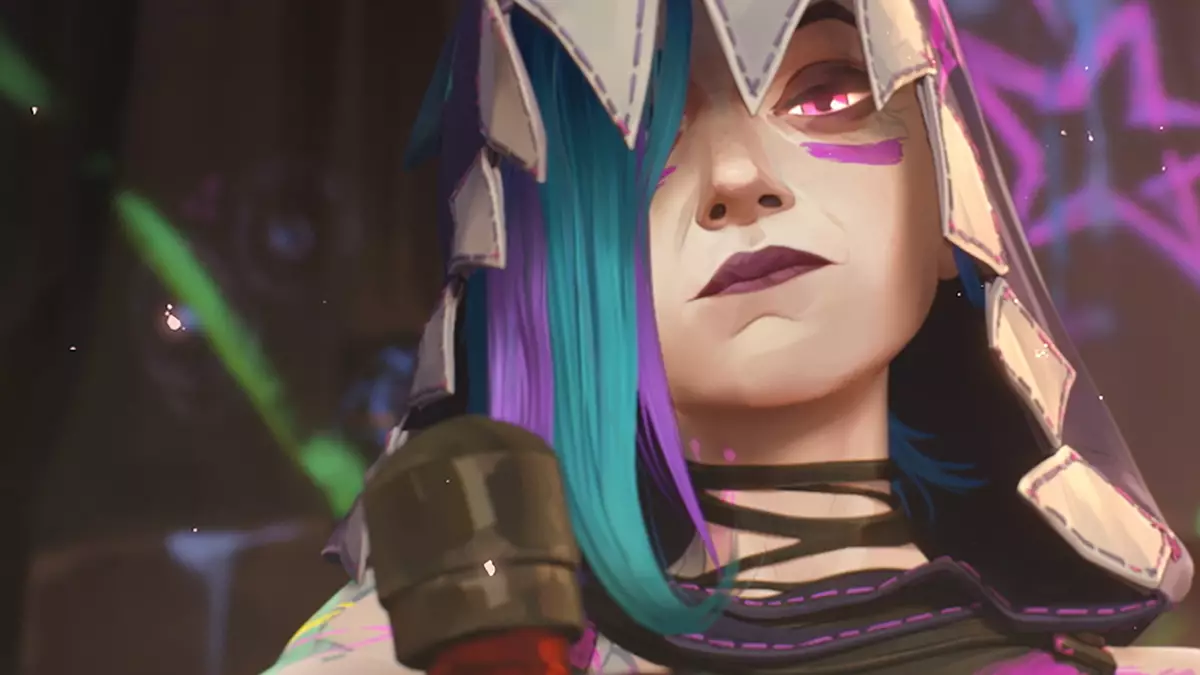With the release of the second and final season of *Arcane*, Riot Games’ much-acclaimed animated adaptation of *League of Legends*, speculation has swirled around its intended duration and story arc. Initially, rumors suggested that the series had ambitious plans for five seasons, igniting curiosity and concern among fans. However, the creators have quickly clarified that this widely held belief stemmed from a misunderstanding—rooted in a jest made by a former executive at Riot Games, Nicolo Laurent.
Christian Linke and Alex Yee, the co-creators of *Arcane*, revealed in a recent interview that the show was always designed to unfold across two seasons. They emphasized that from the moment the pilot received approval, the narrative structure was imagined as a concise two-part story focusing on the relationship between the characters Vi and Jinx. This distinction is essential because it highlights the creators’ commitment to crafting a cohesive tale rather than elongating the series unnecessarily for financial reasons or viewership metrics.
The origin of the five-season rumor can be traced back to an inside joke made by Laurent, who, amid the uncertainty of whether *Arcane* would even see a full season greenlit, whimsically suggested an expansive five-season commitment. This playful banter was never intended to reflect reality but instead was a lighthearted moment that took on a life of its own. Linke and Yee’s recounting of this event reveals the pressures of the animation industry, where stakeholders often grapple with the unknowns of project approvals.
When Laurent pretended to withhold a green light while falsely proposing an extension to five seasons, it was essentially a ruse aimed at easing the tension surrounding the project’s future. Linke characterized this experience as a mix of confusion and laughter—an illustration of how creative environments thrive on camaraderie and humor, even amidst uncertainty. This incident also raises questions about how easily assumptions can transform into widely accepted truths in the entertainment industry.
The staggering production cost for *Arcane*—approximately $250 million—merits examination within this context. Such a financial commitment for an animated series is virtually unprecedented and speaks volumes about Riot’s aspirations for the show. This investment underscores not just a desire to deliver high-quality animated storytelling but also an intention to create a product that resonates with an expansive audience.
Marc Merrill, Riot’s chief product officer, acknowledged the financial strain, asserting that the company feels justified in its expenditure given the positive reception of the series. This statement emphasizes the delicate balance creators must find between financial viability and artistic expression. The pressure to recoup such an investment can lead to difficult decisions about the direction and pacing of a series, particularly when the creative team is inherently limited by their initial vision.
Despite the clarity offered by the creators regarding the two-season structure, hints of potential continuation linger in the air. Linke and Yee have left open the prospect of expansion, suggesting that while the primary narrative arc may conclude, various directions could facilitate further storytelling. The notion of developing beyond the established two-season framework sparks excitement but also trepidation among fans; they often yearn for more content while simultaneously valuing the integrity of the original narrative vision.
As the second season rolls out, with three episodes already available and further installments set to release later this month, anticipation is high. The reception from audiences seems overwhelmingly positive, raising questions about whether fans can expect an announcement about additional content—perhaps a spin-off or related stories set in the same universe.
*Arcane* has solidified itself as a benchmark for animated adaptations, proving that video game narratives can be translated into compelling, nuanced storytelling that captivates diverse audiences. The discussions surrounding its production process offer invaluable insights into the creative challenges and joys faced by developers. As viewers eagerly watch the unfolding of this final season, the unfolding narrative may remain in the spotlight, prompting discussion not only about the characters but also about the future of animated storytelling in general. The legacy of *Arcane* already feels monumental, and for fans, the journey has only just begun.

